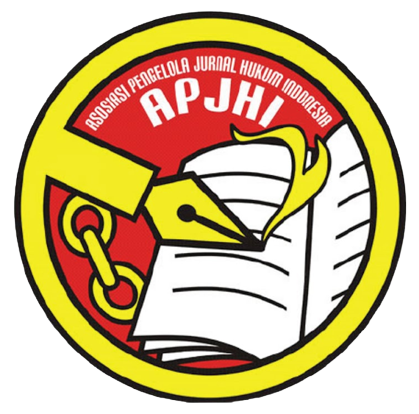Penyelesaian Hukum terhadap Perbuatan Melawan Hukum pada Jasa Konstruksi di Indonesia
DOI:
https://doi.org/10.30652/rlj.8.2.126-147Keywords:
Unlawful acts, Construction services, BuildingsAbstract
The implementation of construction work is carried out based on a construction work contract that has been previously agreed upon. The implementation and supervision of construction work, as stated in Article 28 paragraph 1 of Government Regulation Number 29 of 2000 concerning the Implementation of Construction Services, include physical implementation, supervision, testing, and final handover of the work results. The final results of the work encompass the stages of work results, handover results, initial handover results, and final handover results, which must meet the criteria of cost efficiency, quality standards, and timely completion. Numerous cases arise in the final handover of construction work where the building fails to function, either wholly or partially, in terms of technical aspects, utility, safety, and occupational health, or public safety. These failures are often due to the fault of the Service Provider (Developer), referred to as Construction Work Failures and Building Failures. The purpose of this research is to analyze the legal resolution of unlawful acts in construction services in Indonesia and the legal consequences of resolving unlawful acts in construction services in Indonesia. The method employed is sociological legal research. Based on the research findings, the resolution of unlawful acts in construction services in Indonesia should hold the service providers or developers—whether individuals or legal entities—accountable for any construction work and building failures. Construction work and building failures are often associated with parties choosing measures to protect and safeguard their personnel involved rather than addressing the underlying issues. Natural conditions are frequently blamed for construction failures to cover up human negligence and carelessness, which should be held accountable. Disputes arising from construction work and building failures in a build-operate agreement between construction service providers and users can be resolved through formal processes, such as adjudication, including court proceedings and arbitration, or informal processes based on the agreement of the disputing parties through negotiation and mediation. The legal consequences of resolving unlawful acts in construction services in Indonesia indicate that losses incurred due to unlawful acts entitle the victims to demand compensation from the perpetrators through legal claims. Specifically, for unlawful acts resulting from construction failures, court rulings often oblige the responsible parties to compensate for the losses, either by restoring the damaged building or providing monetary compensation.
References
Agustina, Rosa dkk. Hukum Perikatan (Law of Obligations). Denpasar: Team PL, 2012.
Djojodirdjo, Moegni. Perbuatan Melawan Hukum. Pradnya Paramita, 1982.
Fuady, Munir. Perbuatan Melawan Hukum Pendekatan Kontemporer. Bandung: PT. Citra
Aditia Bakti, 2010.
Kuspriatni, Lista. Aspek Hukum dan Ekonomi. Jakarta: PT Intermasa, 1998.
Lisdiyono, Edy. Improving Legal Argument Critically in the Litigation Mechanism in
Indonesia. Sriwijaya Law Manajemen Proyek, PPS UI, 2002.
Marzuki, Peter Mahmud. Pengantar Ilmu Hukum. Yogyakarta: Prenada Media, 2008.
Muhammad, Abdulkadir. Hukum Perusahaan Indonesia, Cet IV. Bandung: PT Citra Aditya
Bakti, 2010.
Mustazir, A. Pengaruh Sertifikasi Tenaga Ahli Jembatan Terhadap Mutu Jembatan Di
Indonesia. Jakarta: Thesis.
Peraturan Pemerintah Nomor 28 Tahun 2000 tentang Usaha dan Peran Masyarakat Jasa
Konstruksi, Pasal 3.
Putusan MA No. 962K/Pdt/2009.
Putusan Pengadilan Negeri Palembang No.52/pdt/G/2012/PN.PLG.
Review, Palembang: Fakultas Hukum Universitas Sriwijaya.
Santoso, Urip. Perolehan Hak Atas Tanah. Jakarta: PT. Kharisma Putra Utama, 2015.
Soeroso, R. Pengantar Ilmu Hukum. Jakarta: Sinar Grafika, 2006.
Sutantio, Retnowulan. Hukum Acara Perdata dalam Teori dan Praktek. Jakarta: Mandar
Maju, 1989.
Titon. Hak Atas Derajat Yang Optimal, Sebagai HAM di Indonesia. Bandung: Alumni, 2007.
Usman, Rachmadi. Pilihan Penyelesaian Sengketa di Luar Pengadilan. Bandung: PT. Citra
Aditya Bakti, 2003.
Downloads
Published
Issue
Section
License
Copyright (c) 2025 Riau Law Journal

This work is licensed under a Creative Commons Attribution-NonCommercial-ShareAlike 4.0 International License.
The Creative Commons Attribution-NonCommercial-ShareAlike 4.0 (CC BY-NC-SA 4.0) license allows others to share and adapt your work, but only for non-commercial purposes and under the condition that they credit you and license their new creations under the same terms.




